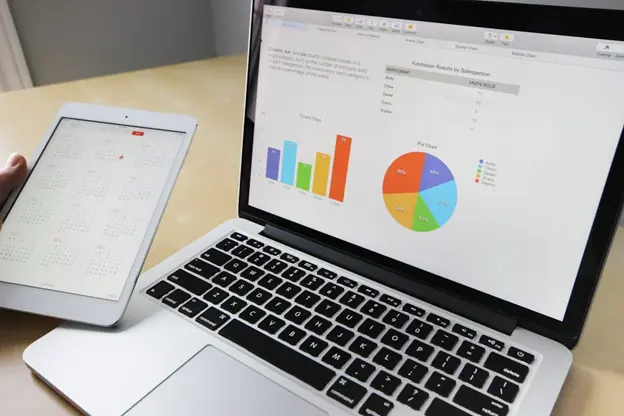
For years, privacy felt like a personal responsibility. People were advised to install VPNs, block cookies, and exercise caution when sharing online. But as data collection expands and regulation grows stricter, the focus has shifted. Today, the battle for internet privacy is less about individual action and more about how corporations manage, protect, and profit from personal information.
What Internet Privacy Means Today
At its core, internet privacy is about controlling personal data—who collects it, how it’s used, and whether users give meaningful consent. Individuals still take steps to protect themselves, like adjusting browser settings or using privacy-focused search engines. But these measures only go so far. The real power lies with companies that track billions of users every day through search engines, apps, and digital advertising networks.
From Individual Rights to Corporate Responsibility
Historical Shift
In the early 2000s, debates centered on privacy focused on personal responsibility. That changed with laws like the EU’s General Data Protection Regulation (GDPR) in 2018 and California’s Consumer Privacy Act (CCPA) in 2020. These regulations put the burden on companies to disclose what data they collect, obtain consent, and give users control.
Tech giants such as Facebook and Google were compelled to revise their policies, face multimillion-dollar fines, and implement new compliance systems. Businesses everywhere had to invest in privacy audits and tools like OneTrust to keep up.
Why Companies Are Now Accountable
Data breaches and surveillance scandals made clear that individuals can’t control everything on their own. A 2022 survey found that more than 60% of consumers believe businesses—not individuals—should be held responsible when data is compromised. That shift in expectation has made corporate accountability the centerpiece of today’s privacy battles.
How Technology Complicates Privacy
Modern tracking tools—cookies, pixels, and device fingerprinting—blur the line between convenience and intrusion.
- Cookies save preferences but also record browsing habits for targeted ads.
- Tracking pixels let platforms like Facebook follow users across the web, even after they leave the site.
- Big data analytics allow companies to build detailed profiles, often without users realizing how much is being collected.
Individuals can block trackers with tools like Ghostery or Privacy Badger, but these defenses only scratch the surface. The scale of corporate data practices means systemic solutions are needed.
How Companies Collect and Use Data
Corporations rely on multiple methods:
- Direct surveys for customer feedback (e.g., Starbucks polling app users).
- Cookies and analytics to measure site traffic (Google Analytics).
- Third-party aggregators, such as Nielsen, combine purchasing data with demographics.
This information powers targeted ads, product recommendations, and business decisions. Amazon uses purchase histories to suggest new items, while Facebook tailors ads based on user engagement. The goal is efficiency and profit, but the trade-off is transparency and trust.
The Role of Law and Regulation
New Standards
GDPR and CCPA require companies to seek consent, disclose collection practices, and give users access to their data. Noncompliance is costly—British Airways paid a £20 million fine in 2020 after failing to secure customer data.
Global Patchwork
- GDPR (EU): Opt-in consent, strong penalties, required data officers.
- CCPA (California): Broader opt-out model but heavy disclosure requirements.
- LGPD (Brazil): A mix of both approaches with room to fix violations before fines.
Multinational corporations often establish a single compliance framework that can meet the requirements of multiple jurisdictions simultaneously.
The Power of Public Awareness
Consumer Pressure
Surveys show that 80% of consumers want clearer privacy policies. Companies like Apple now emphasize transparency, advertising features like “App Tracking Transparency” to set themselves apart from competitors.
Advocacy and Activism
Groups such as the Electronic Frontier Foundation (EFF) and Privacy International campaign for stronger protections, bringing lawsuits, lobbying lawmakers, and raising awareness. Their work keeps pressure on corporations and regulators alike.
What the Future Holds
Corporate Accountability
Companies are expected to include privacy in their broader corporate responsibility reports, alongside sustainability and governance. Transparency is becoming a competitive advantage as much as a compliance issue.
New Technologies
Emerging solutions include:
- Blockchain for decentralized control of sensitive data.
- End-to-end encryption to keep communications private.
- Zero-knowledge proofs that verify information without exposing it.
These tools suggest that the next wave of privacy protections will come from both technology and regulation.
Key Takeaway
The fight for internet privacy has shifted. While individuals still play a role, corporations now carry the primary responsibility for protecting data. Regulation, technology, and consumer pressure have forced businesses to move from casual data collection to accountable, transparent practices.
The question is no longer whether privacy matters—it’s how companies choose to balance profit, compliance, and trust in the years ahead.







